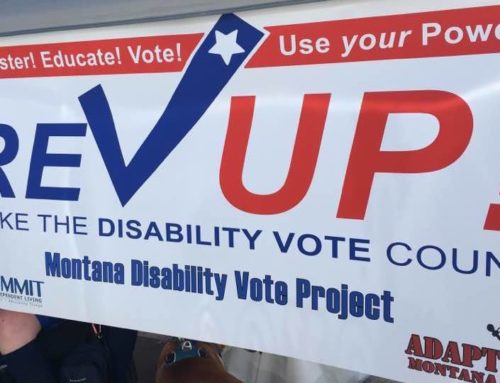Health Care Reform in America means a lot of different things for a lot of different people. For people with disabilities, though, it means a lot of different things…and a whole lot more. Disability spans every race, gender, ethnic group, socio-economic status, political affiliation, you name it…in other words, disability doesn’t discriminate. However, in the diverse pool of America’s vast disability population there is one thing that is for sure…people with disabilities, along with seniors, make up a vast majority of our health care system’s customers and, therefore, also it’s expenditures. That is why the health care reform debate that our country is engulfed in is so vitally important for people with disabilities and also why it is so crucial that we all have accurate information about what is and is not being included in any of the five health care reform bills currently floating around the halls of Congress.
First, let’s dispel some myths. There has been a lot of talk over the past several months that by reforming our health care system, the Government would be creating death panels for seniors or people with disabilities who are no longer productive members of society, or that Medicare benefits and services are going to be cut, or that the Government will be making our health care decisions instead of our doctors, and that health care reform will only lead to the rationing of health care. These portrayals of the debate going on right now all across the country couldn’t be further from the truth and are only used as sound bites to try and scare seniors and other citizens into opposing health care reform only for the purpose of opposing health care reform.
One good thing that has come from these myths though, is that they have gotten more Americans interested in exercising their political rights by joining in on the health care reform debate and asking very good questions and while we can’t and won’t tell you what to think about reforming our health care system, that decision is most certainly up to you (which is part of what makes and always will make this country great), we can provide you with some facts about health care reform to help you become better prepared to make that decision as well as to assist you to stay involved and asking tough questions.
So, let’s dispel those myths shall we. First, the rumors out there about “death panels” are flat out lies. Right now Medicare does not cover counseling for end-of-life care. The portion of the bill in question would simply start providing coverage for optional end-of-life consultations with doctors, something many people already do but have to pay out of pocket for. Second, Medicare services are not being cut. The current proposals include savings in Medicare by cutting out fraud, abuse, waste, and inefficiency, disability advocates, along with AARP, are standing up and making sure benefits for Medicare recipients are not only fully protected, but are improved. Third, none of the legislation circulating in Congress have any provisions in them that would ration care or that would put the Government in charge of making your health care decisions. None.
Because our health care and health care insurance systems play such a big and important role in the lives of virtually all people with disabilities, disability advocates across the nation and here in Montana have been focusing our efforts on ensuring that strong long-term services and supports, specifically home and community-based, provisions are included within the larger picture of health care reform. Just as disability doesn’t discriminate, we don’t want health care reform to discriminate either
Since we last reported on the status of key long-term service and support initiatives in July, much progress has been made towards ensuring that people with disabilities and seniors will be able to access the long-term services and supports they need, in the setting that they themselves choose. The Senate Finance Committee included the Community First Choice Option in its healthcare reform legislation. The Community First Choice Option, originally proposed as an amendment by Senator Charles Schumer of New York, would give states an enhanced federal Medicaid match rate for providing attendant services and supports in the community as an alternative to placing people in nursing facilities or other institutions. The Community First Choice Option amendment was included in Sen. Baucus’ “Chairman’s Mark” which automatically incorporates the language into the legislation.
The Community Living Assistance Services and Supports Act (CLASS) Act, which creates a national, affordable long-term care insurance program to help adults who have or develop functional limitations to remain independent, employed, and a part of their community, was marked up on July 7, 2009 by the U.S. Senate Health Employment Labor and Pensions (HELP) Committee.
The Community Living Assistance Services and Supports (CLASS) Act and the Community First Choice (CFC) option are long-term services and supports reforms needed now. It is urgent that we contact our Senators to ask them to support keeping the Community First Choice option and the CLASS Act in the final Senate health reform bill.
You can call Toll-Free at: 1-800-828-0498 and ask for Senator Baucus’ and Tester’s office. As a statement of support, you can say: “I strongly support the Community First Choice Option and the CLASS Act as a part of the final healthcare bill in the Senate. I am urging the Senator to support both of these priorities as the Senate Finance and HELP Committees merge their bills.”


